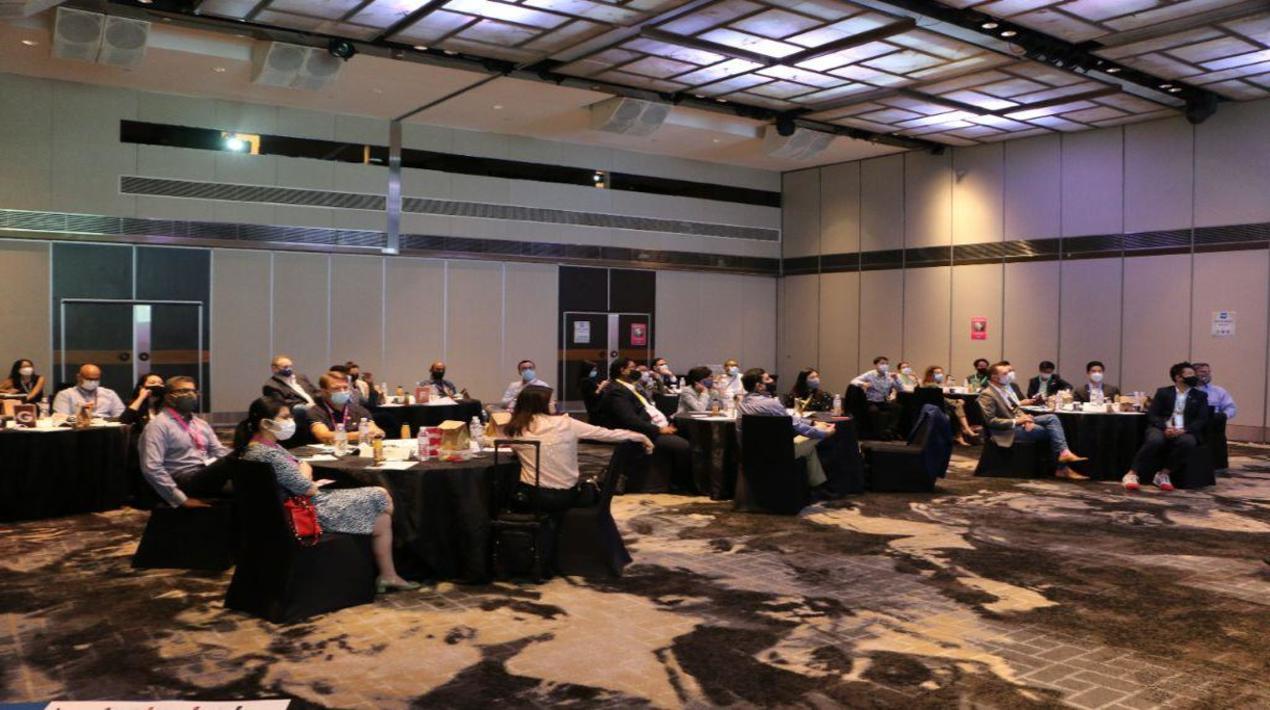
The established financial sector is implementing digital strategies to remain competitive and relevant in the face of rapidly evolving customer expectations. However, fintech start-ups and big tech firms have already begun to fill that void by providing customers with better and more engaging experiences via intuitive, simple-to-use services. These new entrants have eaten away the profit margins of conventional financial firms. Traditional establishments must now be more innovative and think more creatively if they want to not only survive but thrive.
New-age technologies have created several platforms and solutions that can ensure the immediate survival and long-term growth of such institutions. Social media, cloud, big data and analytics, machine learning (ML), and artificial intelligence (AI) can all contribute to improving processes and customer experience in the existing setup.
That apart, companies must simultaneously reconsider traditional innovation models and launch new offerings. An innovation mindset allows banks to create the right digital strategy to meet their short-term, as well as long-term goals.
Data is becoming increasingly important in economies and societies, not least in the financial services sector. Technological advancements have vastly enhanced financial service providers’ ability to capture, store, combine and analyse a much broader range of customer data, ranging from the current or previous location to customer habits and preferences.
Data is simply the most recent way for banks to deliver on their core promise: to listen to their customers, create services that benefit them, and personalised experiences. Critical banking technology architectures leverage this to include a frictionless process layer for banks of the future to deliver on the foundational pillars of digital customer experience.
This, in turn, will allow organisations to build, optimise and secure digital interactions from frontend to backend, across the entire technology stack in a multi-cloud future environment.
Special-purpose applications will become more adaptable and self-configuring as programmes and devices become smarter. Machine learning encompasses dozens of approaches and algorithms for improving the performance of advanced technologies. Algorithms will improve greatly as they are used, and they will include mechanisms to optimise them.
Overarching all this is the pandemic. The crisis’ acceleration of digital transformation has been responsible for rapid evolution in data architecture, allowing for the use of appropriate production and channel to provide better customer experiences.
This was the focal point of the OpenGovLive! Breakfast Insight on 3 September 2021 – a closed-door, invitation-only, interactive session with Singapore’s top financial institutions and organisations. The session aimed to provide the latest information on delivering an effective and efficient customer experience.
Finding Partners to leverage Data and Technology

To kickstart the session, Mohit Sagar, Group Managing Director and Editor-in-Chief, OpenGov Asia delivered the opening address.
Mohit agreed that technology today is being used at a high speed by people. Now the retail, financial and public sectors are also rapidly rolling out new IT, tech software and solutions to survive and thrive in the digital age. Digital transformation is the ‘latest buzz word’ used by everyone across the world in every imaginable area and sector.
While the adoption of various technologies increased significantly during the pandemic, the solutions cannot be referred to as digital transformation. For the most part, organisations relied on band-aid technologies and ad-hoc platforms to stay afloat.
With remote working models in place early in the pandemic, people have grown accustomed to accessing information at any time, on any platform and with any device – courtesy of retail businesses.
The retail industry has embraced personalisation and transformed itself in a variety of ways, including accessibility, options, ease of doing business and security. Customer expectations, based on the retail service delivery model, have had a significant impact on the financial and public sectors.
Mohit emphasised the importance of partnership to leverage data and cloud computing in an organisation. By partnering with the right people, a company can accelerate its digital journey towards digital transformation.
Technology and Data Strategies for the New Normal

Delegates next heard from Dan Brassington, Chief Technical Advisor, APAC, Splunk. Dan agreed with Mohit’s premise, stating that digital transformation is widely used by organisations across all industries and that the future of organisations must be empowered by data running in a multi-cloud world.
He acknowledged that customers in Splunk have not changed; as consumers, they are still moving forward, and this is what organisations are attempting to achieve to ensure that the company is constantly evolving.
Dan agreed that there are fundamental shifts in data-driven decision-making as a COVID-19 forced unprecedented change at unprecedented speed.
The first is forced adoption is where online, mobile and call centre channels play critical roles in leveraging and communicating with customers. There was a clear tipping point when retail migrated to digital and contactless payments in conjunction with how businesses started to consider the data behind their customers’ journeys.
Another significant fundamental shift that occurred as a result of the pandemic was overnight virtualisation. Every business shifted to remote working. Businesses needed to make data accessible and secure and, simultaneously, had to figure out how to enable the people involved in the process to run the organisation.
He observed that as technology evolution take place, businesses must become more resilient and take into consideration the market structure and the reality of national economics.
Speaking on digital channels, he emphasised how they have become the new drivers – the latest ways used to communicate with customers. The caveat is that companies must continue to expand, grow and manage these digital channels. Dan has had to resolve various challenges for their customers – how they plan to continue to evolve within their digital channel, how they will support it with data and what the future of it will be.
The fact of the matter is that all of the innovation and transformation is so that businesses can meet their customers’ expectations and provide smooth experiences in a bid to remain relevant and profitable.
Dan firmly believes that adopting a cloud strategy is essential for organisations to enjoy a better data experience. He claimed that organisations currently only use 60%-70% of their data, they must better leverage data if they are to offer digital services and experiences everywhere they operate. This will then ensure the organisation’s digital transformation.
Dan knows that success is dependent on a cloud strategy. To achieve their goals, organisations must consider visibility, control security posture, the ability to detect an issue before it occurs and observability by understanding the end processes around the application for a better customer experience.
Dealing with an Ecosystem

Simron Sharma, Director of Client Experience, Standard Chartered Bank, revealed that the bank is always looking to their customers or clients, listening to their needs and exploring ways to meet their needs and demands.
Nonetheless, Simron says it is no longer adequate in and of itself as customer demands have increased over time. It is no longer just about listening to them but about listening to an entire ecosystem. Despite all the methods and solutions for connecting with their customers – surveys, ratings, NPS and complaint forms – the question remains, “Is it enough?”
Simron elaborates, “At Standard Chartered Bank, we firmly believe that our relationship managers are probably the bank’s biggest critics because they interact with clients every day and provide us with insights on what the clients demand.”
Simron agrees that the right partners help significantly in providing insights as well as future trends that can guide the bank’s digital journey effectively.
Interactive discussion
After the informative presentations, representatives from the different organisations participated in interactive discussions facilitated by polling questions. This activity is designed to provide live-audience interaction, promote engagement, hear the real-life experience, and impart professional learning and development for participants.
Delegates were first asked how mature their organisation’s cloud strategy is. Over half (54%) answered that they have defined a cloud strategy and were starting to implement it. About a third (31%) said they are still evaluating cloud and experimenting with different options. 15% confirmed that they have a comprehensive cloud strategy and are well ahead in its practical implementation.
Interestingly, one of the companies said it had actually started its cloud journey a few years ago, had recently developed a cloud strategy and has ever since been working on furthering its cloud adoption.
Commenting on barriers, a representative from a Japanese Bank said that not all banks are ready to store data in the cloud environment as they worry about governance and the risk of exposing client’s data.
A delegate from an insurance company shared that they are in between these adoptions as their cloud system does not have an appropriate database. The cost of migration was also a concern for their company to fully adopt the cloud.
The second question asked what the main drivers for data analytics and data capabilities within their organisation were. Similar to the previous question, over half (54%) said it was to gain better insights and to create a personalised customer experience. Over a third (35%) indicated it was to help generate additional revenue through highly targeted marketing strategies and 11% use it for risk mitigation and improving the employee experience (as organisations think that risk and security play the most important part to secure customers data).
The third question inquired about the challenges their financial institutions’ face with getting data insights. An overwhelming majority (82%) agreed the issue is disparate data sources from multiple data silos. The remaining delegates were evenly split (7% each) between of shortage of staff who understand big data analytics and data storage and quality. The last group (4%) went with no proper software for data analytics.
With many financial institutions looking at digital transformation today, delegates were questioned on the importance of digital transformation to their organisations. Almost three fourths (73%) confirmed that it was very important, and they are undergoing transformation currently. Interestingly, about 15% acknowledged that it is important but said it came with certain constraints.
The fifth poll asked if customer-centric organisations are structured around the experiences of their customers. To answer this, delegates had to indicate which statement (presented to them) they most agree with.
A third (33%) opted for design and offer the right services, products and experiences to the right customers. Another 33% said they ensure that their customer requirements are filtered through to capabilities – as such, processes, capabilities, and systems are systematically aligned to customer needs. A fifth (21%) agreed that they understand who “banks with us “– the market, types of customers and how the needs of customers differ. Just over a tenth (13%) indicated that they are a collaborative organisation, where top-down and bottom-up decisions are aligned.
The final question asked what the main challenge was they faced when implementing a digital strategy. Over a third (35%) felt it was legacy technologies lacking integration capabilities – even though they understood that legacy issues are always going to be here. Under 30% went with inflexible business processes and teams while 22% opted for regulatory constraints. About 13% said it was the lack of properly skilled teams.
Conclusion
The Breakfast Insight concluded with remarks from Dan Brassington, who re-emphasised the role of data technology and the need for businesses to begin adapting to it. He urged organisations to become data-driven, digital organisations and advised them to accelerate their digital transformation.
In closing, he clarified that Splunk was not there to sell their products but to assist organisations in leveraging data and the cloud. He invited the delegates to reach out to his team to explore ways they could work together to assist them on their journey.
















